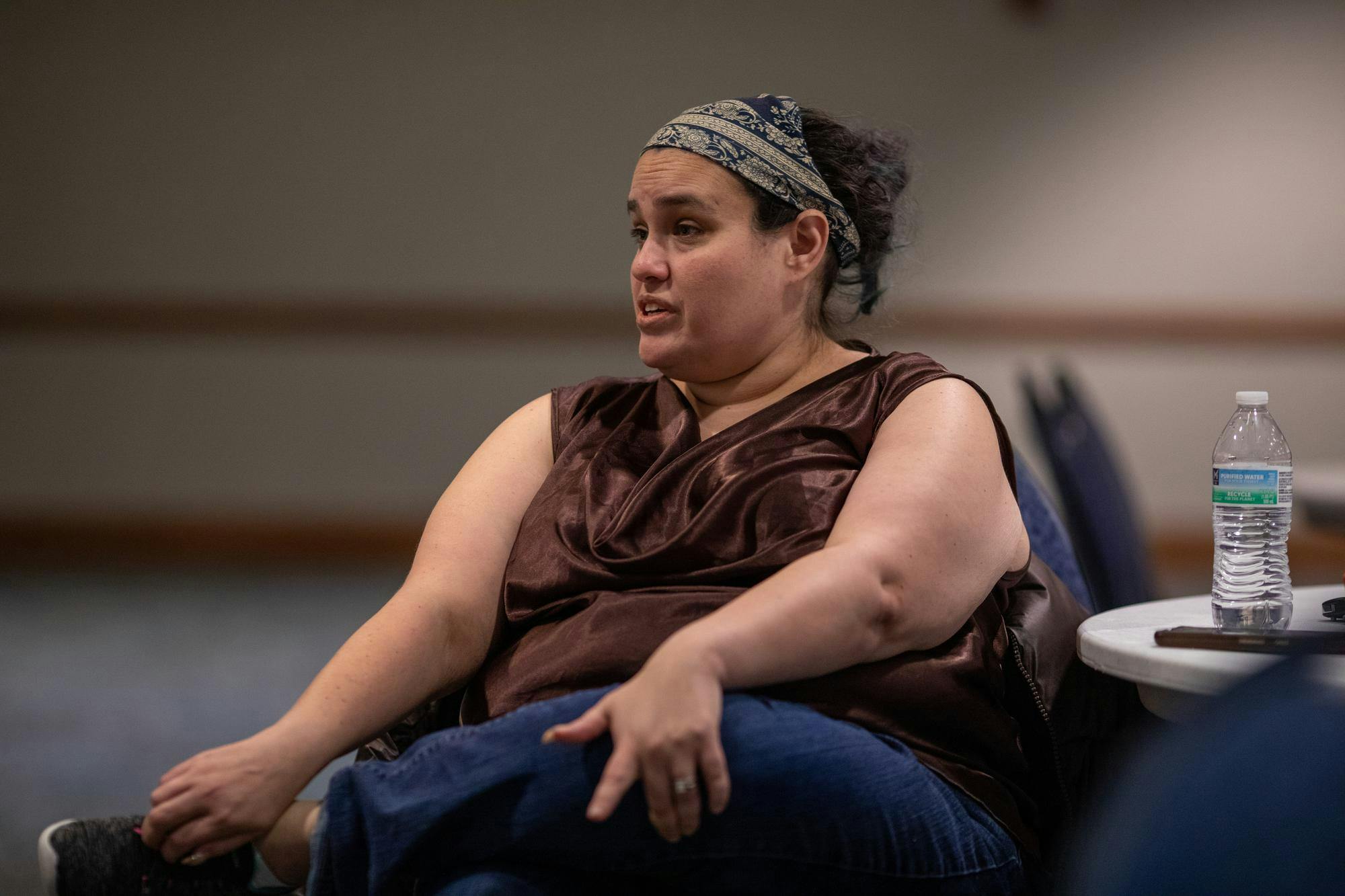The East Lansing Human Rights Commission met with community members this afternoon to discuss how Lansing can better support the unhoused population in East Lansing. The meeting was one of the commission's regularly hosted Coffee & Conversation sessions.
The goal of the Coffee & Conversation series is to provide a forum for community discussion on important issues of diversity and inclusion in East Lansing. Previous topics have included neurodivergence, racism and reproductive justice.
Commissioner Rebecca Kasen opened the conversation by sharing the story of a woman she worked with through her role as executive director of the Women's Center of Greater Lansing. Although Kasen was able to secure a housing voucher for her client, she was unable to find a single apartment in East Lansing that would accept the voucher.
A housing voucher assists low-income families by reducing the amount of rent the family must pay out of pocket. However, the property owner must agree to rent under the program.
Additionally, Kasen said End Violent Encounters and Haven House are the only two shelters in the city that are not religiously affiliated. This leaves unhoused individuals with nowhere to go if they feel unwelcome in the religious space, Kasen said.
"If I was homeless today, and the only bed available was at the City Rescue Mission … My kids and I would be sleeping in our car tonight because of the church service mandatory requirements," Kasen said.
The lack of affordable housing and homeless shelters in East Lansing was one of the main concerns discussed in the meeting. The group also discussed the stigma surrounding homelessness and the lack of resources available to unhoused individuals.
East Lansing community member Theory Ezra Grande-Cassell attended the meeting to shed light on the issue as a formerly unhoused individual. Grande-Cassell said the dehumanization of unhoused people is one of the biggest problems surrounding the issue because it increases fear and deters help that they would receive.
As a homeless 17-year-old, Grande-Cassell regularly held a sign that said, "Can you see me?," in an attempt to increase the visibility of unhoused people.
"It was amazing how many people actually, when they read that were like, 'Oh, yes, hi. Yes, I can see you,'" Grande-Cassell said. "Instead of sweeping the problem under the rug, … visibility is created for these people and their voices are being heard."
Grande-Cassell said that giving recognition and kindness to a homeless person can make a significant difference at an individual level.
"Next time someone asks you for money on the street, instead of just saying sorry, like actually you stop and say, I'm so sorry, I don't have any cash on me today, but how is your day going?" Grande-Cassell said. "The least you can do is treat them like a human being."
Although homelessness can seem like an issue that is too big for any one individual to help, Kasen said community pressure on businesses and institutions is essential in creating change. A recently opened warming center in Lansing came out of community pressure, and Kasen said she hopes that more pressure will improve the quality of the location.
Kasen said it is vital that community members realize there is a homeless population in East Lansing and that it is not solely a Lansing problem.
"East Lansing has to pony up a little bit," Kasen said. "All that money is coming from within the city of Lansing, but we have a homeless population here. And if we don't have space for a warming center, we should be contributing to that."
Grande-Cassell said that not only do more resources need to be created, but they need to be easier to qualify for, as many individuals have to deny extra income or opportunities because it will take them out of eligibility without providing relief.
"The net needs to be cast wider," Grande-Cassell said.
Grande-Cassell and Kasen agreed that if there was more connection between professional organizations and community support, more could be done to support the homeless population, as both funding and care for the community are essential to creating solutions.
Although no specific solutions were finalized at today's meeting, Kasen said that generating conversation around the issue is important in gathering support and creating change.
Support student media!
Please consider donating to The State News and help fund the future of journalism.
Discussion
Share and discuss “East Lansing Human Rights Commission holds forum to discuss homelessness in East Lansing” on social media.





